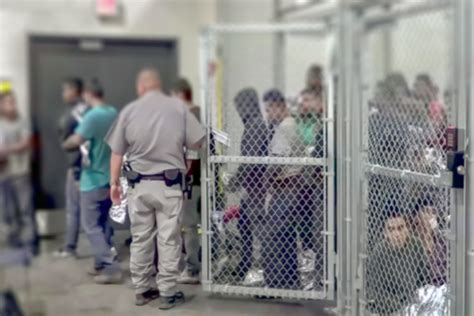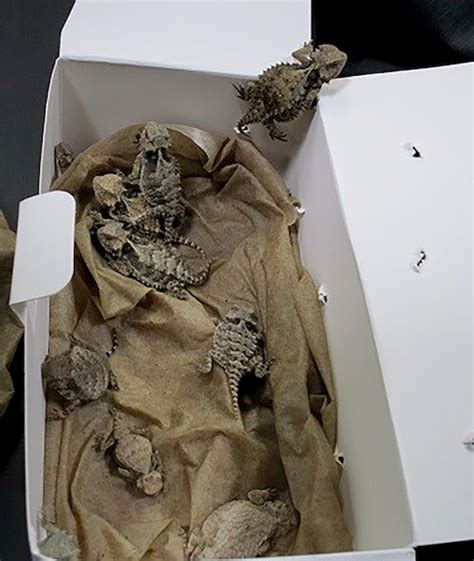
A federal immigration raid at an Omaha, Nebraska, meatpacking plant has ignited protests and drawn condemnation from advocacy groups, who argue the operation unnecessarily targeted immigrant workers and disrupted the local economy. The Homeland Security Investigations (HSI) action, which occurred on Tuesday, resulted in the arrest of dozens of employees at a plant operated by Omaha Prime, a company specializing in meat processing and distribution.
The HSI operation, part of a broader effort to enforce immigration laws and combat illegal employment, quickly drew criticism from local activists and immigrant rights organizations. Protesters gathered outside the plant and the HSI field office, holding signs and chanting slogans against what they described as heavy-handed tactics and the separation of families.
According to HSI, the raid was the culmination of a months-long investigation into alleged immigration violations and potential criminal activity at Omaha Prime. The agency stated that it had gathered evidence suggesting that the company knowingly hired undocumented workers and may have been involved in other illegal practices.
“HSI is committed to enforcing the nation’s immigration laws and holding employers accountable for knowingly hiring unauthorized workers,” said HSI spokesperson Tanya Roman in a statement. “These types of operations are essential to maintaining the integrity of our immigration system and protecting American jobs.”
However, critics argue that the raid was disproportionate and harmful to the community. They contend that the arrested workers were primarily low-wage earners who posed no threat to public safety and that the operation would have a chilling effect on the local economy, which relies heavily on immigrant labor in the meatpacking industry.
“This raid is a devastating blow to our community,” said Esmeralda Umana, an advocate with the Nebraska Appleseed Center for Law in the Public Interest. “These workers are essential to our economy, and their families depend on their income. Raiding their workplace and deporting them is not only cruel but also economically shortsighted.”
The incident has also reignited the debate over immigration reform and the role of federal agencies in enforcing immigration laws. Some lawmakers and advocacy groups are calling for comprehensive immigration reform that would provide a pathway to citizenship for undocumented immigrants and address the root causes of illegal immigration. Others argue that the government should focus on securing the border and cracking down on employers who hire undocumented workers.
The Raid and its Immediate Aftermath
The raid at Omaha Prime unfolded early Tuesday morning, with HSI agents arriving at the plant accompanied by local law enforcement officers. The agents reportedly cordoned off the facility and began questioning employees about their immigration status. Those who could not provide valid documentation were taken into custody.
While HSI has not released the exact number of individuals arrested, reports indicate that dozens of workers were detained. The names and nationalities of those arrested have not been publicly disclosed, but advocacy groups believe that the majority are Latino immigrants.
Omaha Prime has not yet issued a formal statement regarding the raid, but sources familiar with the company said that management was cooperating with the investigation. The plant was temporarily shut down following the raid but has since resumed operations with a reduced workforce.
The immediate aftermath of the raid saw families scrambling to locate their loved ones and seek legal assistance. Several organizations, including the ACLU of Nebraska and the Immigrant Legal Center, dispatched lawyers and volunteers to provide support to the affected families.
“We are deeply concerned about the impact of this raid on the families and the community,” said Rose Godinez, legal and policy counsel for the ACLU of Nebraska. “We are working to ensure that those arrested have access to legal representation and that their rights are protected.”
Reactions and Protests
News of the raid quickly spread, sparking outrage and protests in Omaha and beyond. Demonstrations were held outside the Omaha Prime plant and the HSI office, with protesters carrying signs that read “No Human Being Is Illegal” and “Stop the Raids.”
The protests were organized by a coalition of immigrant rights groups, labor unions, and community organizations. Speakers at the rallies condemned the raid as inhumane and economically damaging, arguing that it would further destabilize families and communities already struggling with poverty and discrimination.
“These raids are not about enforcing the law; they are about terrorizing immigrant communities and driving them into the shadows,” said Sergio Sosa, executive director of the Heartland Workers Center. “We will not stand by while our neighbors are targeted and deported.”
Some local politicians also voiced their opposition to the raid. Omaha City Council member Juan Padilla criticized the operation as a waste of resources and a betrayal of the city’s values.
“Omaha is a welcoming city that values diversity and inclusion,” Padilla said in a statement. “This raid sends the wrong message to our immigrant communities, who are an integral part of our city.”
Economic Impact and Labor Concerns
The raid has raised concerns about the potential economic impact on the Omaha area, which relies heavily on the meatpacking industry. Meatpacking plants are often located in rural or economically depressed areas and employ a large number of immigrant workers who are willing to take on physically demanding and often dangerous jobs.
Advocates argue that the raid could lead to labor shortages and disruptions in the meat supply chain, potentially driving up prices for consumers. They also point out that the loss of these workers could have a ripple effect on the local economy, impacting businesses that depend on their spending.
“These workers are essential to the functioning of our economy,” said John Doe, an economics professor at the University of Nebraska-Omaha. “Removing them from the workforce will have significant economic consequences, not just for the meatpacking industry but for the entire community.”
The United Food and Commercial Workers (UFCW) Local 22, which represents workers at several meatpacking plants in the Omaha area, also condemned the raid. The union argued that the operation would undermine workers’ rights and create a climate of fear and intimidation.
“We stand in solidarity with our immigrant members and their families,” said Jack Williams, president of UFCW Local 22. “We will fight to protect their rights and ensure that they are treated with dignity and respect.”
Legal and Ethical Questions
The raid has also raised legal and ethical questions about the role of federal immigration enforcement in the workplace. Some legal experts argue that HSI’s tactics may violate workers’ rights and that the agency should focus on prosecuting employers who knowingly hire undocumented workers rather than targeting individual employees.
“There is a legitimate question as to whether these raids are an effective use of resources,” said Jane Smith, an immigration attorney in Omaha. “Instead of focusing on arresting low-wage workers, HSI should be targeting the employers who are profiting from their labor.”
Others argue that the government has a right to enforce immigration laws and that employers who hire undocumented workers are breaking the law. They contend that these types of operations are necessary to deter illegal immigration and protect American jobs.
“The government has a responsibility to enforce the law,” said John Brown, a conservative commentator. “Employers who knowingly hire undocumented workers should be held accountable, and those who are here illegally should be deported.”
The debate over immigration enforcement in the workplace is likely to continue as long as there is a large number of undocumented workers in the United States and as long as there are employers willing to hire them.
Broader Immigration Context
The Omaha meat plant raid is occurring within a broader national context of increased immigration enforcement under recent administrations. Immigration and Customs Enforcement (ICE), HSI’s parent agency, has been under pressure to increase deportations and crack down on illegal immigration.
Critics argue that these policies have led to the separation of families, the erosion of due process rights, and the targeting of vulnerable communities. They call for a more humane and comprehensive approach to immigration reform that would address the root causes of illegal immigration and provide a pathway to citizenship for undocumented immigrants.
“We need to move away from this punitive approach to immigration enforcement and towards a system that is fair, just, and compassionate,” said Maria Rodriguez, director of the National Immigration Law Center. “We need to recognize the contributions that immigrants make to our society and create a system that allows them to fully participate in our communities.”
The Future of Immigration Enforcement
The future of immigration enforcement in the United States remains uncertain. The debate over immigration reform is highly polarized, and there is little consensus on the best way to address the issue.
Some policymakers are pushing for stricter border security measures and increased deportations. Others are advocating for comprehensive immigration reform that would include a pathway to citizenship for undocumented immigrants, reforms to the legal immigration system, and measures to address the root causes of illegal immigration.
It is likely that immigration enforcement will continue to be a major issue in the United States for the foreseeable future. The raid in Omaha serves as a reminder of the human cost of these policies and the need for a more thoughtful and humane approach to immigration reform.
FAQ: Omaha Meat Plant Raid
1. Why did the federal government conduct a raid on the Omaha Prime meatpacking plant?
The Homeland Security Investigations (HSI) conducted the raid as part of an ongoing investigation into alleged immigration violations and potential criminal activity at Omaha Prime. HSI claims to have gathered evidence suggesting the company knowingly hired unauthorized workers and may have been involved in other illegal practices. HSI sees it as enforcing immigration laws and holding employers accountable for knowingly hiring unauthorized workers.
2. How many people were arrested in the raid, and what is their likely immigration status?
While HSI has not released the exact number, reports indicate that dozens of workers were detained. Advocacy groups believe the majority of those arrested are Latino immigrants who could not provide valid documentation of their legal status to work in the U.S. Their names and nationalities have not been publicly disclosed.
3. What has been the local community’s reaction to the meat plant raid?
The raid has sparked significant outrage and protests in Omaha and beyond. Demonstrations were held outside the Omaha Prime plant and the HSI office, with protesters carrying signs and chanting slogans against what they describe as heavy-handed tactics and the separation of families. Local politicians and community organizations have also voiced their opposition to the raid.
4. What are the potential economic consequences of the raid on the Omaha area?
The raid could lead to labor shortages and disruptions in the meat supply chain, potentially driving up prices for consumers. The loss of these workers could also have a ripple effect on the local economy, impacting businesses that depend on their spending. Some economists fear significant economic consequences, not just for the meatpacking industry but for the entire community.
5. What legal assistance is available for those affected by the raid?
Several organizations, including the ACLU of Nebraska and the Immigrant Legal Center, have dispatched lawyers and volunteers to provide support to the affected families. These organizations are working to ensure that those arrested have access to legal representation and that their rights are protected.
Detailed Expansion and Contextual Analysis
The Omaha meat plant raid is not an isolated incident. It is part of a broader trend of increased immigration enforcement under recent administrations, particularly focusing on worksite enforcement. This strategy aims to deter illegal immigration by targeting employers who hire undocumented workers.
Historical Context of Worksite Enforcement
Worksite enforcement has fluctuated in intensity over the years, often influenced by political priorities and economic conditions. In the past, administrations have favored different approaches, ranging from strict enforcement to more lenient policies that prioritized other enforcement activities, such as border security.
Under recent administrations, there has been a renewed emphasis on worksite enforcement, with ICE and HSI conducting more raids and audits of businesses suspected of employing undocumented workers. This has led to increased anxiety and fear within immigrant communities, particularly in industries that rely heavily on immigrant labor.
The Meatpacking Industry: A History of Reliance on Immigrant Labor
The meatpacking industry has a long history of relying on immigrant labor. For decades, immigrants from various countries have come to the United States to work in meatpacking plants, often taking on physically demanding and dangerous jobs that many native-born workers are unwilling to do.
The industry’s reliance on immigrant labor has been driven by several factors, including low wages, difficult working conditions, and a shortage of available workers in rural areas where many meatpacking plants are located.
Immigrant workers have played a crucial role in the growth and success of the meatpacking industry, but they have also faced exploitation and discrimination. They often work long hours for low wages, with limited benefits and little job security. They are also at higher risk of injury and illness due to the hazardous nature of the work.
The Impact on Families and Communities
The Omaha meat plant raid has had a devastating impact on the families and communities affected. Many of the arrested workers are the primary breadwinners for their families, and their detention and potential deportation could leave their families without income and support.
Children whose parents are detained or deported may experience trauma and emotional distress. They may also face financial hardship and instability. The raid can create a climate of fear and distrust within immigrant communities, making it more difficult for families to access essential services and participate in civic life.
Legal Challenges and Due Process Concerns
The legal basis for worksite enforcement raids has been challenged in court. Some legal experts argue that HSI’s tactics may violate workers’ rights and that the agency should focus on prosecuting employers who knowingly hire undocumented workers rather than targeting individual employees.
There are also concerns about due process rights for those arrested in the raids. Some individuals may not have access to legal representation or may not fully understand their rights. They may be pressured to sign documents or make statements that could harm their case.
The Need for Comprehensive Immigration Reform
The Omaha meat plant raid highlights the need for comprehensive immigration reform. The current immigration system is broken and does not adequately address the needs of the economy or the rights of immigrants.
Comprehensive immigration reform should include a pathway to citizenship for undocumented immigrants who have lived and worked in the United States for many years and who have contributed to their communities. It should also include reforms to the legal immigration system to make it easier for businesses to hire foreign workers when they cannot find qualified American workers.
In addition, comprehensive immigration reform should address the root causes of illegal immigration by investing in economic development in countries that send large numbers of immigrants to the United States.
Alternatives to Worksite Raids
There are alternatives to worksite raids that could be more effective and less harmful to communities. One alternative is to focus on auditing and fining employers who knowingly hire undocumented workers. This would deter employers from hiring undocumented workers and create a more level playing field for businesses that comply with the law.
Another alternative is to create a more streamlined and efficient system for verifying employment eligibility. This would make it easier for employers to hire legal workers and reduce the incentive to hire undocumented workers.
The Role of State and Local Governments
State and local governments also have a role to play in addressing immigration issues. They can provide support and services to immigrant communities, such as language assistance, job training, and legal aid. They can also work to combat discrimination and promote integration.
Some state and local governments have enacted policies that are more welcoming to immigrants, while others have adopted more restrictive policies. The debate over immigration policy is likely to continue at the state and local level for the foreseeable future.
Ethical Considerations
The Omaha meat plant raid raises important ethical considerations about the treatment of immigrant workers and the role of government in enforcing immigration laws.
It is unethical to exploit and mistreat workers, regardless of their immigration status. Employers have a moral obligation to treat their workers with dignity and respect and to provide them with fair wages and safe working conditions.
The government also has a moral obligation to enforce immigration laws in a fair and humane manner. It should not target vulnerable communities or separate families. It should also ensure that those arrested in immigration raids have access to legal representation and due process rights.
Looking Ahead
The Omaha meat plant raid is a reminder of the complex and controversial issues surrounding immigration in the United States. The debate over immigration policy is likely to continue for the foreseeable future.
It is important to have a thoughtful and informed discussion about immigration policy and to consider the economic, social, and ethical implications of different approaches. The goal should be to create an immigration system that is fair, just, and that reflects the values of the United States.
The raid also highlights the crucial role that immigrant workers play in the American economy, particularly in industries like meatpacking. Recognizing their contributions and ensuring their rights are protected is essential for a strong and equitable society. Moving forward, policies that focus on collaboration with businesses to ensure legal hiring practices and protecting workers’ rights could be more effective than punitive raids.
Conclusion
The Omaha meat plant raid serves as a stark reminder of the tensions and complexities surrounding immigration enforcement in the United States. While authorities emphasize the importance of upholding immigration laws and deterring illegal employment, critics argue that such operations disproportionately impact vulnerable communities, disrupt local economies, and raise ethical concerns. The incident underscores the urgent need for comprehensive immigration reform that addresses the root causes of illegal immigration, provides pathways to legal status, and ensures fair treatment and protection for all workers, regardless of their immigration status. The long-term solution lies not in reactive raids but in proactive policies that promote collaboration, compliance, and respect for human dignity.


![Browns QB Shakeup: [QB Name] Takes Lead at Minicamp!](https://jelajahtekno.com/wp-content/uploads/2025/06/unnamed-file-609-150x150.jpg)






